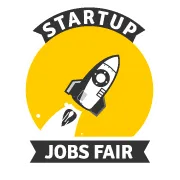Yourstory recently conducted India’s first jobs fair exclusively for startups in Bangalore. 26 leading

startup companies had set up stall to meet and talk to aspirants. In addition, there were over 20 early stage startups that were looking for employees or co-founders.
During the day, we saw over 4000 participants walk in for discussions with companies. Many of them were freshers. These were enthusiastic about landing a job. But when it came to how to go about it, many just walked up to companies and handed over their resumes.
During the day, Yourstory even held a session for freshers on the best way to approach getting a job. We know that finding a job is tough when you don’t have experience. That’s why you need to think different.
Here are some tips that you should adopt when job-hunting as a fresher.
Research the company
It always amazes me that people miss out this basic step. Not just freshers, but even experienced folks walk into an interview without making an effort to read up on what the company does.
In many interviews I have conducted, one of the first questions I ask is ‘You must have gone through our web-site. Why don’t you tell me what you know about us so that I can help fill the blanks?”
In many cases, the candidates make excuses - I just browsed the website casually. I didn’t have time. I thought I would find out during the interview.
A typical interviewer goes through tens of interviews during a day. S/he has put aside important work to conduct the interview. The last thing s/he wants is to explain what the company is all about.
Imagine if you walk into the interview stating ‘I read about the latest product update you had, and I’m keen on working with your company because I am keen on the domain.’ That immediately tells the interviewer that you’re aware of the work the firm does and they have something to start discussions on.
Get details about the company and products during the research. No one expects that you know the latest quarterly reports in mind, but you should know enough for the interviewer to feel you’ve not made a superficial statement.
Talk about projects you have done
As a fresher, you have no work experience that an interviewer can test you on. Almost everyone’s resume claims that they know all major languages and platforms. Most people think - I’ll write it to get the call. In the best case, they may never ask me to write code in the language I don’t know (doesn’t this stem from all the optional subjects we have in curriculum?)
For an interviewer, you’re just one of many candidates. They are looking for things that will set you apart and make their job easy.
The best way to grab attention is to talk about projects you were involved in, if you have been. If you’ve already worked on open source projects or contributed something, that will set you apart. But please don’t embellish your contributions or hype your college projects. The project you did to create a website for your college canteen may seem like great work to you, but it doesn’t seem much if you’re a company that’s building products for consumers across the world.
Keep your resume crisp
Everyone’s fighting for time in today’s world. No one has time to go through paragraphs to understand your potential. Make your resumes short and retain only interesting stuff. As a fresher, you’ll be tempted to write long paras because your resume looks shorter than your friends.
Highlight the skills that the job requires. If you’ve done your research, you will be able to tailor your resume for the job on offer. If you’re wondering, the answer’s yes. You should have multiple versions of your resume ready.
But please. Leave the long-winded essays for your college papers. Just be crisp about your achievements.
Practice your introduction
Most people have short attention spans. You’re competing for attention with so many others. Start your introduction strong so that you capture the listener’s attention. Focus on points that are your strengths - if you’re not from a leading college, it makes more sense to talk about relevant projects and why you’d like to work for the company.
Do not start with statements like ‘If given a chance, I will do very well for the company’. That’s understood. And do not make generic statements like ‘I’m very passionate’.
Curate your online presence
One interview is usually never enough for the interviewer to figure out you’re perfect for the job (though it’s much much easier to figure out you’re not the right fit). And there’s usually a line of candidates who will also go through the process before/after you.
Once the company decides that you make the shortlist, many also search for you online to see if there’s anything else they find.
Maintain a LinkedIn profile, even if you don’t have work experience. LinkedIn has a public part of the profile that shows up when someone searches your name.
LinkedIn recently announced CheckIn, an app that lets companies gather information about aspirants and contact them post the event. That’s yet another reason to maintain a good LinkedIn profile.
A quick note on recommendations: Stay away from too many recommendations from your peers. They will definitely find you extremely talented and a future asset to any team, and the interviewer will definitely discount their views. Try getting recommendations from your professors, or from senior professionals that you do your college internships with. That counts a lot more.
Also, be careful about what you say on twitter. It may seem wonderful to shoot out something funny on a political scandal. But remember, your future employer may not find it funny, or think you naive.
All the best with your job search!
Reach the author at @shrinathv or on his LinkedIn profile.







